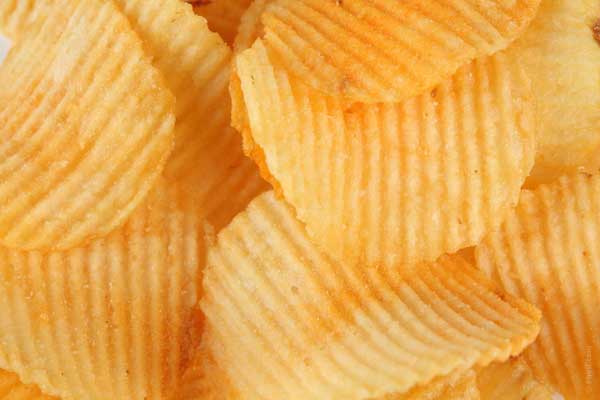Does Your Kid Have Food Intolerance or Sensitivity?
Food related allergies usually quickly reveal themselves, and if your kid halts breathing suddenly when you open a bag of nuts or develops hives upon chewing apricots. So food allergies are mostly easy to nail down due to immediate IgE reaction.
Not so easily nailed down can be food sensitivities that display delayed reactions. When IgG and immune reactions don’t manifest themselves soon – and it may take any time up to 5 days – they become especially difficult to detect and, owing to a variety of symptoms, resist definite recognition.
What’s more, food sensitivities can get worse with the passing of time, especially if too much of these foods has been consumed which can lead to disbalancing the gut microbiome.
What foods are likely to cause allergies in the young?
Food allergy means that a child’s immune system starts to treat the particular food as a virus or a potentially dangerous invading stuff. It produces antibodies to suppress alien matter, and unhealthy symptoms crop up.
The foods most responsible for allergic reactions in kids:
- peanuts and tree nuts
- fish and shellfish
- eggs
- cow’s milk
- soy
- wheat
If you know that your kid is sensitive to any of these foods, further comsumption of them may result in inflammation that might end up with a leaky gut and, in worst cases, autoimmune diseases or other chronic problems in a while.
What signs of sensitivity to food can manifest themselves and what tests can show them
Queasiness, retching
It doesn’t have to mean food sensitivity – it could be a single occasion, food gone bad, or a stomach bug that found its way in, yet it is worth your while to write down such cases and see if they work themselves out in a pattern.
So you see that every time the child eats eggs or a piece of fish and feels like throwing it up, it becomes a good point to raise when talking with the pediatrician. An upset stomach can be a sign of developing food sensitivity, but it’s up to the parent to discover the correlation between retching and vomiting and eating a particular kind of food.
An eating habit diary will stand you in good stead for observing your kid’s regular reactions to different kind of foods. Regular is the key word because the initial reactions are likely to be mild growing stronger each time around, and the earlier you notice the pattern the sooner your pediatrician can advise you on proper treatment.
Stomachache and the runs
Stomachache, diarrhea and other digestive dysfunctions are often indicative of a nascent sensitivity or poor tolerance. Since they can also be symptoms of other ailments, parents must treat them with close attention and learn to distinguish between a pattern and a casual outbreak.
Keep a look at milk protein which often triggers intolerance in infants and makes their stool green and mucous-like with possibly traces of blood.
Nursing mothers could do well to exclude dairy products from their meals, thereby preventing babies from taking unnecessary protein with breast milk.
Onsets of asthma
Another typical food intolerance reaction is bouts of asthma. They indicate sensitivity or poor tolerance to sulfites. Sulfites, beside occurring naturally, are found as additives in processed foods, baked goods, chips, and even dried fruits.
The child may complain of a tight feeling in the chest and short breath, begin to wheeze and cough.
So once you have noticed that after chewing on the favorite snack the little dear’s breath grows wheezy or they burst into coughing, what you need to do is run your eye over the ingredients list.
Whatever symptoms there may be related to breathing had better be brought to the family doctor before they get worse and the intolerance has developed to a hazardous point.
Changes in everyday behavior
Low tolerance or sensitivity to some foods can result in the kid’s behavior taking a change for the worse. Dairy, gluten, and food dyes may cause just this kind of reaction. When you look into the food diary and see that after eating something artificially colored, with red #40 or something like that, your infant behaves aggressively or displays irritation, chances are this is a reaction to the artificial color he or she is intolerant to.
Try and clear the infant’s diet of any artificial coloring and see if the reaction persists – or subsists.
Recurrent headache
Some kids react to food with headaches which are caused by inner inflammations, so parents should also look for corelations for headaches in the child’s diet.
With this symptom, too, if they discovered that headaches recur after eating some particular food, they should bring the fact to the attention of their family doctor. Actually, all kinds of headaches must be discussed medically, since they may be caused by many different conditions which should all be examined properly.
Other food allergy symptoms
Upon eating the food an allergic infant is sensitive to, he or she is bound to develop some of the symptoms listed below (it may take from several minutes to about an hour afterwards):
- coughing and sneezing
- wheezy breath or voice
- light head, dizziness
- runny nose
- queer taste in the mouth
- swollen lips, tongue, parts or the whole face
- area around the mouth itches
- red, itchy skin (bumps or rash)
We can‘t expect from younger children that they are able to state their complaints clearly – they may take some interpreting, so parents must be on the lookout for complaints of the following kind:
- “My face gets itchy.”
- “My tongue is heavy.”
- “There’s something in my throat so I can’t swallow.”
- “Things are spinning.”
Don’t hesitate to get emergency help
A child’s allergic response may prove to be quite strong (anaphylaxis), especially to shellfish, peanuts and foods like these. Once you’ve spotted that your child is unable to breath or swallow properly after eating a food you have reasons to consider suspicious, be quick to call 911 and ask for immediate medical help.
If you know your child is sensitive to foods
Even if you don’t know exactly but only began to suspect that your child(ren) develop food intolerance or allergy, consult your family doctor or allergist. They will help you pinpoint the source of the problem and work out the best possible treatment. Antihistamines and some medication may have to be prescribed to put down the symptoms.





